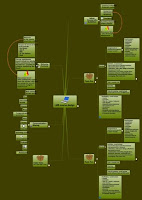On Thursday 27 November 2008, Hazel Owen and Helen Martin (Centere of Teaching and Learning Innovation) re-presented their Tertiary Assessment Symposium paper - "Using online tools to provide relevant, authentic and timely assessment". The paper represents an extended version of that given in Wellington, with more detail and discussion invited.
Below is the abstract for the paper:
"Assessment practice is at its most rich when assessment events are relevant, authentic and timely. Relevant assessment is that which is inextricably linked to learning outcomes designed to meet an agreed graduate profile (Biggs, 1999). Authentic assessment requires students to perform real-world tasks that demonstrate meaningful application of essential skills and knowledge. Timely assessment provides students with the opportunity to apply skills and knowledge gained as they learn. Teaching and learning in a blended format enables relevant, authentic and timely assessment that is greatly facilitated by the use of online tools, including self-grading, simulation and problem-based approaches, activities that require reflection and peer-review and the electronic delivery of assessment tasks. Drawing on Bloom's extended taxonomy of cognitive development (Anderson, Krathwohl & Bloom , 2001) and sociocultural theory (Vygotsky, 1934) this paper will demonstrate the value of designing and using e-assessments to enhance student learning. Examples will be explored that illustrate some of the benefits to teaching and learning offered by moving toward assessments based in flexible, mobile, collaborative learning technologies".
Please cite as: Owen, H and Martin, H. (2008, November 27). Using online tools to provide relevant, authentic and timely assessment. Paper presented at The Tertiary Assessment Symposium Revisited: Unitec Lunch Time Series. Unitec: Auckland, NZ.







